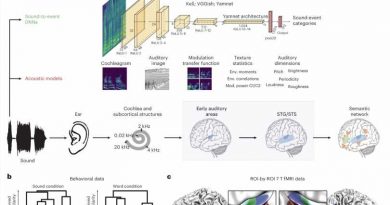Woman in her 30s could FEEL surgeon cut her torso open in nightmare op
Woman in her 30s is left with PTSD after being able to FEEL her surgeon cutting her torso because blundering NHS staff kept her awake and operated on her with the wrong anaesthetic
- Yeovil District Hospital accepted responsibility for the traumatising incident
- It blamed a ‘communication breakdown’ for staff using the wrong anaesthetic
- The woman had a spinal block and could still feel part of her abdomen in the op
- She felt a surgeon slice her open and insert a camera for the procedure
A woman in her 30s was left with PTSD after blundering surgeons operated on her without proper anaesthetic.
The anonymous patient was supposed to have a gynaecological procedure at Yeovil District Hospital in Somerset in 2018.
Medics were supposed to put her under but instead they wrongly gave her a local anaesthetic that numbed the lower half of her body.
It meant she could feel the scalpel cut into her belly button and was awake while a tubular camera – a laparoscope – was pushed into her abdomen.
Staff didn’t hear her screams, the woman said, and the surgery continued while she was on the operating table.
The hospital has now admitted liability for the incident and said a ‘breakdown of communication’ meant she ended up with the wrong type of anaesthetic.

Medical staff at Yeovil District Hospital (pictured) reportedly did not notice the patient try to scream as she was operated on while she could still feel part of her torso. The woman said she now suffers regular nightmares about the ordeal
‘I have suffered a lot with PTSD and the nightmares have been horrendous,’ the woman said.
‘I have these images lying on a table with people watching me and not listening to my screams. It is terrible and I can wake up around three times a week due to this.’
The woman was supposed to be having a gynaecological procedure – exactly what operation hasn’t been specified – under general anaesthetic.
But she was only given a spinal anaesthetic, also known as a spinal block, which numbs everything below the waist and paralyses the legs.
General anaesthetic is used for major operations to knock a patient unconscious, stop them feeling pain and prevent them remembering what happens in the operating theatre.
Hospitals usually use a combination of injected and inhaled drugs to anaesthetise someone – these may include the sedative propofol, barbiturates, nitrous oxide and ketamine.
Anaesthetics’ function is to keep someone completely unconscious for a long period of time and to block nerve signals from the body.
Blocking the nerve signals stops people from feeling any pain or movement, which could wake them up. Bone surgery, for example, can be surprisingly aggressive and involve tools such as hammers and chisels.
Anaesthetic also induces amnesia and stops people from forming memories from while they were in the operating room. This means that even if someone could hear something while they were unconscious, or they started to become aware of their surroundings, they should have no memory of it.
Sources: WebMD and NICE
Because the procedure was done using keyhole surgery, the laparoscope was inserted into the woman’s abdomen above the area the anaesthetic had numbed.
She said she felt her torso fill with gas while the procedure was going on.
And, although she tried to scream, she claims the oxygen mask and the curtain between her upper and lower body meant none of the staff noticed.
An increase in her blood pressure alerted staff to her discomfort but the procedure was continued, her lawyers from the firm Irwin Mitchell said.
The woman said: ‘I’m also now very nervous and paranoid around doctors too – my trust has just been shattered.
‘While nothing will change what has happened to me, I just hope that lessons can be learned so no one else faces similar problems in the future.’
The patient added that she was told by the surgeon that he had never undertaken such a procedure on a conscious patient, as she was taken into surgery.
A spokeswoman for Yeovil Hospital said: ‘It appears that a breakdown of communication led to the use of a different anaesthetic to that normally required for such an operation. We are sorry if this patient suffered any distress as a result.
‘However, this case is yet to be resolved with the claimant and we will therefore not discuss this further.
‘In a typical year, we carry out more than 15,000 operations, many of them life-saving, and we pride ourselves on the highest possible standards of care and safety.’
Source: Read Full Article



